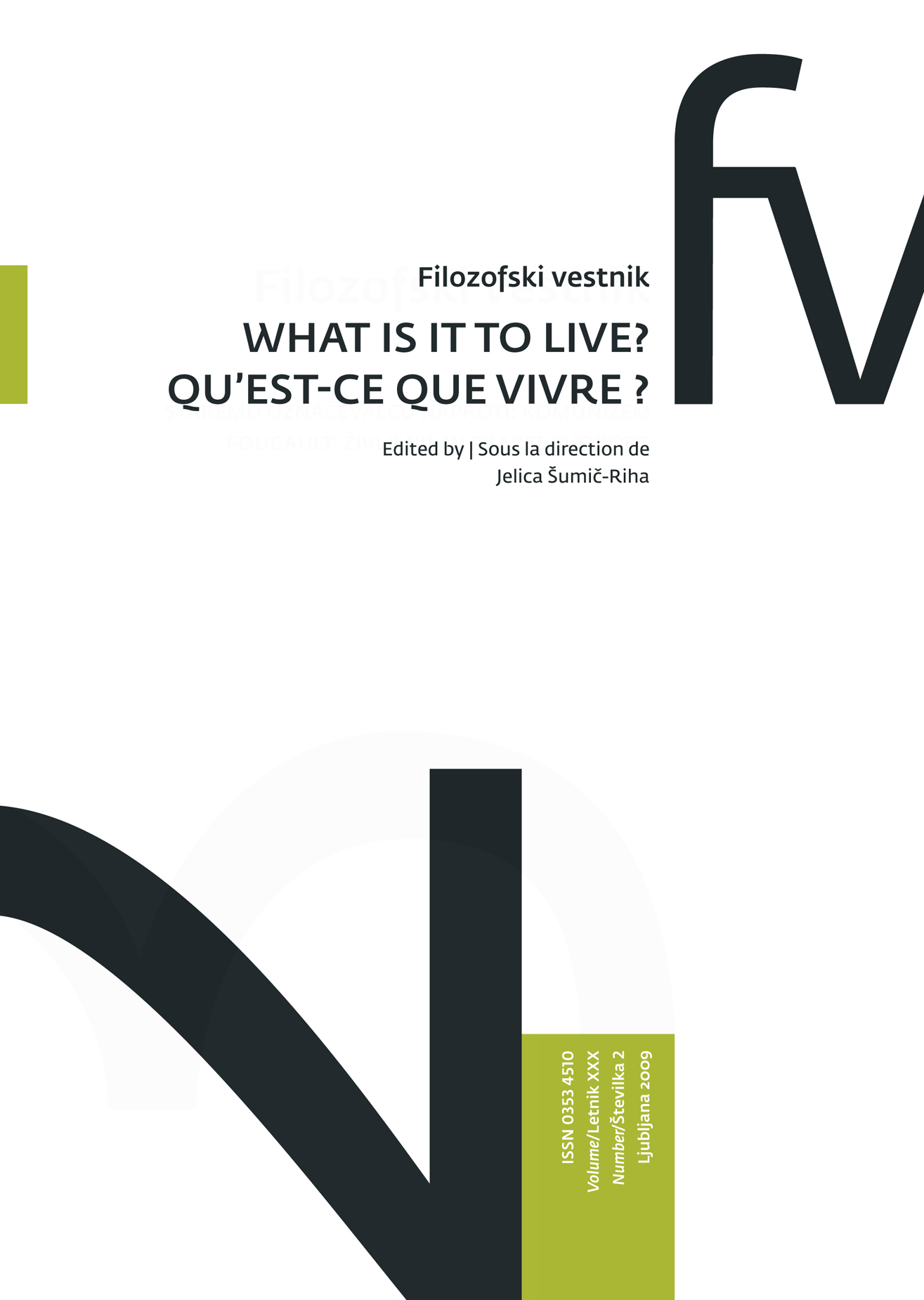The World of Desire: Lacan between Evolutionary Biology and Psychoanalytic Theory
Povzetek
The primary aim of this paper is to analyse the biological foundations of Lacan's notion of desire as expounded in his first two Seminars (1953–1955). These works provide us with his most detailed discussion of the species-specific preconditions that allow homo sapiens to speak and establish symbolic pacts among individuals. Despite its irreducibility to the domain of animal instincts, human desire can only be adequately understood against the background of an evolutionary enquiry on the emergence of language, one that problematises both the implicit teleological assumptions of a certain Darwinianism and the logical consistency of an investigation of origins. Drawing on organic and anatomical evidence, Lacan postulates a primordial biological discord between man and his environment, centred on premature birth and a subsequent disorder of the imagination, from which language and the symbolic arise immanently. Desire is seen in this context as coextensive with what Lacan repeatedly refers to as "the world of the symbol". The key argument I intend to put forward is that the symbolic order is a world in the sense that, in always presenting itself to man as a totality, it compensates for the failure of a strictly "natural" relationship between man as animal and his environment. In performing this function, the symbolic also amounts to nothing else than "human nature" tout-court. In other words, the symbolic is an exceptional and to a certain extent autonomous pseudo-environmentthat must nevertheless be interpreted by means of biological concepts.Prenosi
Podatki o prenosih še niso na voljo.
Prenosi
Objavljeno
2010-06-09
Kako citirati
Chiesa, L. (2010). The World of Desire: Lacan between Evolutionary Biology and Psychoanalytic Theory. Filozofski Vestnik, 30(2). Pridobljeno od https://ojs.zrc-sazu.si/filozofski-vestnik/article/view/3212
Številka
Rubrike
Lacanian Biology
Licenca
Avtorji jamčijo, da je delo njihova avtorska stvaritev, da v njem niso kršene avtorske pravice tretjih oseb ali kake druge pravice. V primeru zahtevkov tretjih oseb se avtorji zavezujejo, da bodo varovali interese založnika ter da bodo povrnili morebitno škodo.
Podrobneje v rubriki: Prispevki





